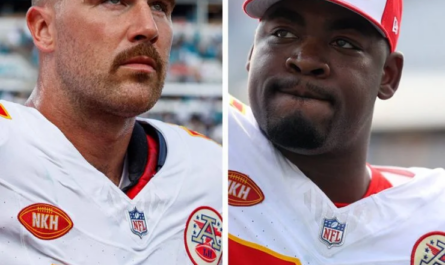## Brett Favre’s Intuition: A Key to His MVP Success
[bg_collapse view=”button-orange” color=”#4a4949″ expand_text=”Show More” collapse_text=”Show Less” ]
Brett Favre’s career was defined by his exceptional intuition and ability to improvise on the football field. From his early days with the Atlanta Falcons to his later MVP seasons with the Green Bay Packers, Favre relied heavily on his instincts and feel for the game. While he was certainly gifted physically, it was his mental acuity and knack for making split-second decisions that set him apart. Favre’s exceptional intuition played a crucial role in his success as an MVP-caliber quarterback and cemented his legacy as one of the greatest gunslingers in NFL history.
### Reading Defenses
One of Favre’s greatest strengths was his ability to read defenses before the snap. He possessed an uncanny awareness of defensive schemes and coverages that gave him a significant advantage over opposing secondaries. Favre could quickly identify blitz packages, zone drops, and man coverage looks based on pre-snap alignments and tendencies. This allowed him to anticipate where pressure might come from and where his primary and secondary reads might be.
According to former Packers offensive coordinator Tom Rossley, who worked with Favre for over a decade, “He had a tremendous feel for coverages and blitzes. He could recognize things before the snap and know where to go with the ball.” Packers wide receiver Robert Brooks echoed this, saying “Brett was a master at reading defenses. He had such a great understanding of schemes that he knew where to go with the ball almost instantly after the snap.”
Favre’s pre-snap reads allowed him to process information rapidly and make decisions about audibles, hot routes, and progressions even before the play began. This gave Green Bay’s offense a major advantage in anticipating how the defense would react. It also helped Favre maximize possessions by avoiding negative plays and putting the offense in optimal situations. His ability to quickly decipher defenses was a major reason for Green Bay’s offensive success throughout much of the 1990s.
### Anticipating Plays
While reading defenses pre-snap was impressive on its own, Favre took it a step further by anticipating exactly how plays would unfold after the snap. He had an uncanny feel for the movements of individual defenders and could predict their reactions and timing. This allowed Favre to deliver passes into tight windows and hit receivers in stride before they had even made their cuts. It also helped him extend plays and improvise when under pressure.
Longtime Packers teammate Don Beebe explained, “Brett had a sixth sense about where people were going to be. He knew how to put the ball in spots for us to catch it without breaking our stride.” Fellow receiver Antonio Freeman echoed this, saying “Brett had the ability to see things develop before they happened. He knew how to anticipate openings and get the ball out right as they happened.”
Countless times, Favre delivered pinpoint passes without even looking at his intended target. He would fire strikes to the sideline or back shoulder on blind faith, trusting his receiver to be in the exact spot his intuition told him they would be. These anticipation throws showcased Favre’s incredible spatial awareness and feel for how plays unfold in real time. It was this ability to predict movements that made him such a nightmare for opposing secondaries.
### Making Quick Decisions
In the fast-paced NFL, quarterbacks must process information and react in a split second. Favre excelled in this area thanks to his lightning-quick decision making. He could recognize opportunities and dangers immediately after the snap and respond accordingly. Whether pulling the ball down to scramble, changing his progression, or firing to an outlet, Favre made choices instinctively based on how the defense flowed post-snap.
Former Packers offensive coordinator Sherm Lewis said of Favre’s quick thinking:
“He had such a great feel for what was happening. As soon as he got the snap, he was able to see things develop and know where to go with the football right away. A lot of quarterbacks have to go through progressions, but Brett just saw it and let it rip. That’s why he was so dangerous.”
Favre’s rapid processing and reactions kept defenses on their heels. They could never fully commit to one player or area because Favre might audible or change plans in a split second. His quick decisions maximized possessions for Green Bay and put them in advantageous down-and-distance situations more often than not.
### Taking Calculated Risks
While other quarterbacks played it safe, Favre was willing to take chances based on his instincts. He trusted his gut to make unconventional throws into tight windows or run the ball himself if a play broke down. Sometimes these risks resulted in interceptions or sacks, but they also led to spectacular game-changing plays. Favre’s fearlessness set him apart from more conservative QBs.
Former Packers GM Ron Wolf, who drafted Favre, explained his willingness to take risks:
“Brett played with an abandon that few quarterbacks have. He was going to let it all hang out there. Sometimes that meant a pick, but it also meant unbelievable plays that won us games. That’s what separated him – the ability to trust his instincts even if it meant putting it all on the line.”
Favre’s gutsy plays often paid off in clutch situations. None was bigger than his last-second touchdown pass to win Super Bowl XXXI. With the game on the line, Favre let it fly to the back corner of the end zone on 4th down, trusting his receiver would make a play. It was the epitome of Favre betting on his instincts when the stakes were highest.
### Examples of Favre’s Intuition in Action
While Favre’s intuition was an ever-present part of his game, a few notable examples best showcase how it manifested:
**Super Bowl XXXI Winning TD:** Down by four with 32 seconds left, Favre dropped back and lofted a perfect pass into the back corner for the game-winning score. His ability to read the defense, anticipate the route, and deliver under immense pressure was a testament to his feel for the game.
**Countless No-Look Passes:** Favre routinely threw passes without even looking at his target, trusting his instincts and anticipation to deliver strikes. These plays blew minds and showed an unprecedented spatial awareness few QBs could match.
**Extending Plays with Scrambles:** When under duress, Favre excelled at sensing pressure and breaking contain with his legs. His instincts allowed him to buy time for receivers and potentially turn sacks into positive yards.
**Audibles at the Line:** Favre frequently changed plays pre-snap based on defensive looks. His ability to diagnose schemes and anticipate outcomes served as the foundation for audibles that exploited weaknesses.
**Fourth Down Gambles:** In clutch situations, Favre bet on his gut by going for it on fourth down deep in his own territory or going for touchdowns instead of field goals near the goal line. High-risk plays often paid off.
### Conclusion
While blessed with a cannon arm and toughness, Brett Favre’s true secret weapon was his uncanny intuition and feel for the game. His ability to read defenses, anticipate plays, make split-second decisions, and take calculated risks set him apart from his peers. Favre played with a fearless abandon, trusting his instincts even when conventional wisdom said to play it safe. That willingness to bet on his gut is what propelled him to MVP heights and cemented his legacy as one of football’s ultimate gunslingers. For Favre, football was simply a game he played by instinct – and few ever played with better intuition.
[/bg_collapse]



